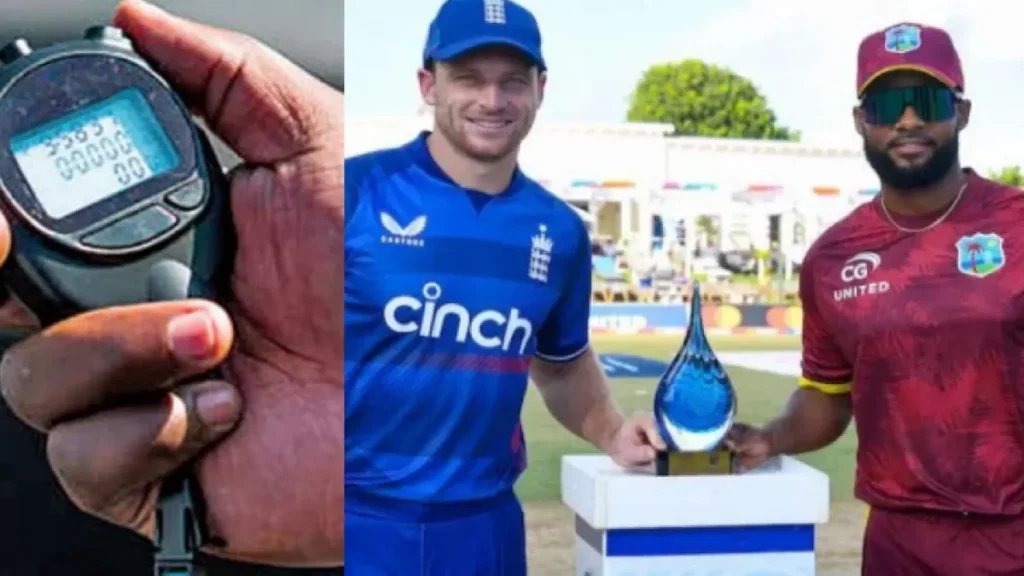For the first time in international cricket, a stop clock will be used in the next T20I series between the West Indies and England. On Tuesday, December 12, in Barbados, the series begins.
The installation of the stop-clock was authorized at the most recent ICC conference in Ahmedabad in order to speed up the game by punishing time wasted by the bowling team.

The fielding side must be ready to bowl the first ball of their next over within 60 seconds of the preceding over being finished, according to the stop-clock regulation. If this rule is broken, the bowling side will get two warnings, and a third violation will result in a five-run penalty.
Between December 2023 and April 2024, the clock will be on trial for Full Member men’s ODIs and T20Is, totaling about 59 games. The foregoing in-game fines are in addition to the monetary fee that teams will pay under the ICC’s playing regulations for sluggish over-rates.
The clock has been included to clause 41.9 of the amended Men’s ODI and T20I playing conditions, which deals with measures against time waste by the fielding side.
“The outcomes of the stop clock trial will be assessed at the end of the trial period” – ICC General Manager
Wasim Khan, general manager of the ICC, released a statement on the results of the stop-clock rule, which will be evaluated at the conclusion of the trial period.
The World Cricket Committee of the MCC, which comprised, among others, Ricky Ponting, Saurav Ganguly, and Kumar Sangakkara, first put out this concept in 2018.
Khan stated in a release:
“We are continually looking at ways to speed up the pace of play across international cricket. The stop clock trial in white ball international cricket follows the introduction of a successful new playing condition in 2022, which resulted in the fielding team only being allowed four fielders outside of the inner circle if they were not in a position to bowl the first ball of their final over in the stipulated time. The outcomes of the stop clock trial will be assessed at the end of the trial period.”
Wasim Khan




